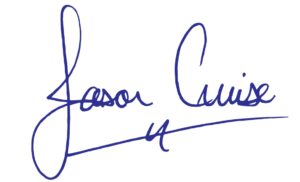
Men of God are often seen as a stellar humans. Wonderful citizens. The G.O.A.T in their community. Icons within the marketplace. Men of God are men seen as aspirational … as long as they don’t push it too much.
If you choose to wear your Kingdom convictions out front, like you would a bespoke shirt, expect the tide to change. You’ll likely be labeled a throwback.
You’ll stand great odds to be branded as clinging to old school values at best … and a foe at worst.
People living in the flow of pop culture manifestos detest those who refuse the current’s flow.
And that does not stop at the edge of the steeple either.
The Old Testament Prophets faced a polluted people. The New Testament Apostles were constantly calling God’s people to higher ground. Amos faced it and he was a farmer. Nehemiah faced it and he worked in the government sector. Paul faced it and he was bi-vocational.
So it was with them, so it will be for any man today.
And so it goes for any of us who chose to be men of God; men who wear our convictions out front for all to see.
Modern day men of God often travel the path of legendary football coaches. Masters of the gridiron encountered crowds that herald them as wise legends 50 years after their prime coaching moments were well behind them; but if you investigate it more closely you’ll see that these legends weren’t seen as legends in their peak years.
No, they were those that pushed the status quo. They challenged the institutions and they challenged institutional thinking; not because they were rebels, but because they had conviction.
Look closely at legends of any market niche and you’ll see that when they did not carry the title of legend, they were often detested when in the middle of their performance years (when they were unknowingly becoming legends).
Such was the case with Elijah.
Here you have one of the top tier prophets of God.
Revered by the masses … in the centuries that came later.
Yet in his performance years, Elijah was certainly not appreciated by the masses of “church folk.” In fact, he was despised by steeple dwellers, and seen as the problem instead of the solution.
Nothing shows that more than in his interaction with Ahab.
Ahab lived a hybrid life. Ahab would have been a welcomed American leader, a chameleon, to the core.
A King of Israel at the time, he had a little bit of God to help him navigate life with the Jews, and a little bit of Baal as his other god to round out his spiritual chi and remain in balance [and it gave him an excuse to life a profane life].
1 Kings 18 relays the exchange when Ahab and Elijah finally saw one another after seasons of distance.
When Ahab saw Elijah, he said to him, “Is that you, you troubler of Israel?”
“I have not made trouble for Israel,” Elijah replied. “But you and your father’s family have. You have abandoned the Lord’s commands and have followed the Baals.”
Elijah. The man of God who called down fire from heaven. The man of God seen in the Transfiguration of Jesus on the mountain. The man of God sent from God to be their prophet of honor.
That same Elijah … cherished by God … was called the “troubler” of God’s people.
Why? Because he woudn’t bend.
Elijah was seen as harsh because of the stances he took.
Don’t you love how Elijah never blinked?
Don’t you love how Elijah came right back at Ahab with the truth of what was really happening?
It wasn’t that Elijah was bold and rash. He was just honest, and he had no back step when faced with an adversary.
Elijah’s unbending nature was one that was seen as nothing but trouble for a people group – the kind of people who wanted just enough religion to make them sleep better at night – but not enough righteousness to move them beyond their sin state. The kind of people who put on their Sunday best to ‘fake it till you make it’ so that all the world can see the retail reality of what religion can produce.
Just know this friend: religion has not – does not – nor will not – hold up under pressure.
Plastic spirituality doesn’t hold up under pressure simply because plastic bends under a heavy load. It’s pure physics of the anthropological kind.
As culture puts enough pressure on a man to conform, plasticity will ultimately be revealed akin to the foundation of sand or rock, depending on what the home builder values in the construction phase.
Elijah had his flaws.
Elijah could even be intimidated when his life was threatened by a woman who meant it when she put out a contract on him. [Let’s have grace here: wouldn’t you be rattled if an angry woman vowed to kill you and you knew she had the means to carry it out?]
Yet in the end Elijah never backed up.
He found his conviction because He knew His Creator.
Never forget my brother that on the day you die you will not be standing in front of a jury of your peers as they decide your fate.
You will not … be standing to give an account with your CEO as your judge.
You will not … be standing in front of a panel of pop culture police that will decide your eternal future, nor will stand before a politician as your verdict maker.
You will give an account for your life. Yes. You will. And it will be in front Christ.
If unyielding obedience to His standard garners you with the avatar of a ‘troubler’ … wear that badge with honor.
